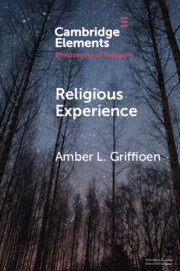Element contents
Religious Experience
Published online by Cambridge University Press: 24 November 2021
Summary
- Type
- Element
- Information
- Online ISBN: 9781108699952Publisher: Cambridge University PressPrint publication: 23 December 2021
References
- 10
- Cited by



